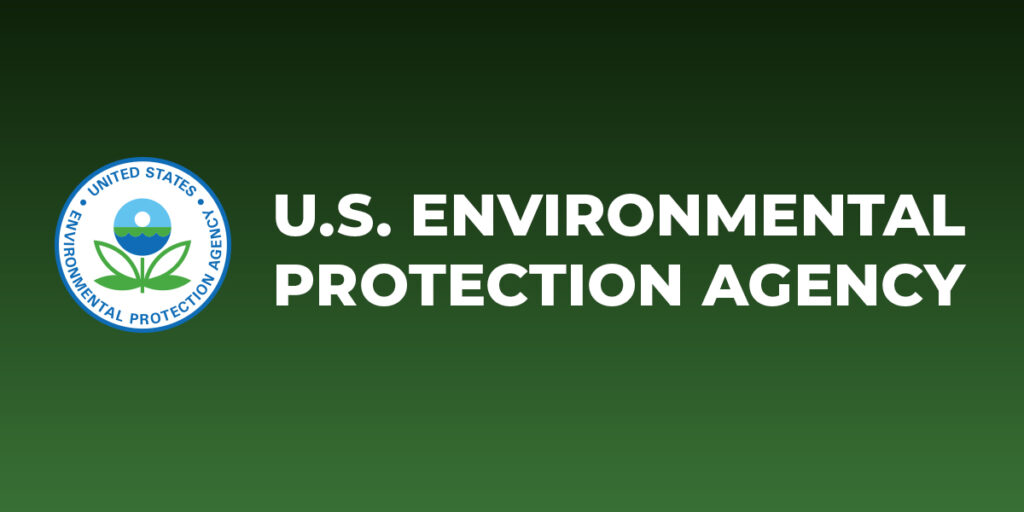 (AGENPARL) - Roma, 28 Settembre 2023
(AGENPARL) - Roma, 28 Settembre 2023(AGENPARL) – gio 28 settembre 2023 Issued: Sep 28, 2023 (3:02pm EDT)
If you wish to unsubscribe please do so
here: http://url6130.epa.mediaroom.com/ls/click?upn=-2BroytcZInNRyuFbAvAoN5aMEQDHIx2RtQl0jT-2FwLgZHafJKm-2F7NYrsKNAZH88rhd98aG2o5sSGIX8iVgGgXwOczi8WNFU0a7GLvUAvQ8R0QCtkuTI4WABymYAm345NQt4nNT_mLoYh0p4AWg4foFr5HgrZ1QioQ33bLwdnQ-2BsYGKFX9mApcfdQmv0-2Bvkdf9kq-2BlYj-2FA1yUYYMZ1OgNzjDHySVqbOF3I41qGlhl2vC9RhjxUw0Kfn-2Fef39pymS02PKxYNDuTBvAGtUg1ENweV-2BpEEoC6NMv52VWU9tjFVVME8ks8bXhQUixxNl-2FvB92p0QCoAqbt4IU6tQt-2FZOEF7fa92rQAaBCB-2FV1R4fRvpymRiq12c6LnqgxNs63vrfG9qMyR-2FT3IWo-2BpA9GaUEg9NWQS2WEw-3D-3D
EPA Finalizes Rule to Require Reporting of PFAS Data to Better Protect
Communities from Forever Chemicals
WASHINGTON (Sept. 28, 2023) – Today, the U.S. Environmental Protection
Agency (EPA) finalized a rule that will provide EPA, its partners, and the
public with the largest-ever dataset of per- and polyfluoroalkyl substances
(PFAS) manufactured and used in the United States. This rule builds on over
two years of progress on the Biden-Harris Administration’s action plan to
combat PFAS pollution, safeguarding public health and advancing environmental
justice, and is a key action in EPA’s PFAS Strategic Roadmap.
PFAS are a category of manufactured chemicals that have been used in industry
and consumer products since the 1940s. PFAS have characteristics that make
them useful in a variety of products, including nonstick cookware, waterproof
clothing, and firefighting foam, as well as in certain manufacturing
processes.
The reporting rule under the Toxic Substances Control Act (TSCA) is a
statutory requirement under the FY2020 National Defense Authorization Act
(NDAA) that requires all manufacturers (including importers) of PFAS and
PFAS-containing articles in any year since 2011 to report information related
to chemical identity, uses, volumes made and processed, byproducts,
environmental and health effects, worker exposure, and disposal to EPA.
“The data we’ll receive from this rule will be a game-changer in advancing
our ability to understand and effectively protect people from PFAS,” said
Assistant Administrator for the Office of Chemical Safety and Pollution
Prevention Michal Freedhoff. “Today we take another important step under
EPA’s PFAS Strategic Roadmap to deliver on President Biden’s clear
direction to finally address this legacy pollution endangering people across
America.”
In order to effectively research, monitor, and regulate PFAS, EPA is taking
action to better understand who is using PFAS, how they are being used, and in
what quantities. This rule will produce actionable data that can be used by
EPA, as well as state, local, and Tribal governments to craft policies and
laws that protect people from dangerous “forever chemicals.”
Since EPA proposed this rule in June 2021, the agency has provided multiple
opportunities for public comment and stakeholder input, including a Small
Business Advocacy Review Panel in April 2022 and an Initial Regulatory
Flexibility Analysis released for public comment in November 2022.
The final rule expands on the definition of PFAS in the proposed rule to
include 41 additional PFAS that were identified as being of concern. EPA has
determined that at least 1,462 PFAS that are known to have been made or used
in the U.S. since 2011 will be subject to the final rule, better capturing the
important data the agency needs to protect human health and the environment
from these chemicals.
The final rule also streamlines reporting requirements and reduces the burden
for those who made or used small quantities of PFAS for research and
development purposes and for those who imported PFAS contained in articles
into the U.S.
Data is due to EPA within 18 months of the effective date of the final rule,
with an additional six months for reports from small businesses that are
solely reporting data on importing PFAS contained in articles.
Read the rule.
To unsubscribe or change your settings click here:
http://url6130.epa.mediaroom.com/ls/click?upn=-2BroytcZInNRyuFbAvAoN5aMEQDHIx2RtQl0jT-2FwLgZFdW2WYdzQmaasDKJ3YChU3lV9trW4L9JqaiNzQH1z1hH-2BVk-2FyFUGNVIufdQvjANX22DvUGPrgIz-2BMdfZm8GJhuopWJsb-2BEeU5Q5a-2F1jFRY5Q-3D-3D6mVm_mLoYh0p4AWg4foFr5HgrZ1QioQ33bLwdnQ-2BsYGKFX9mApcfdQmv0-2Bvkdf9kq-2BlYj-2FA1yUYYMZ1OgNzjDHySVqbOF3I41qGlhl2vC9RhjxUzhW1K1VnpLOPho9Z7spT6UDfJA8c9AqscJJR3cL-2FqBvQcUoOex-2BuV8TI3vaUiZF5bWJdJxboq2Z0F4eo7Dj-2F-2F25-2FXHvadHV7huxZ-2BgmPmADTa0ghqwuGGeojirxEy1j16b9ucLZm67W0fO-2FAoHJyX1cah8HdRC0-2Bk5QOhSIrk6og-3D-3D

